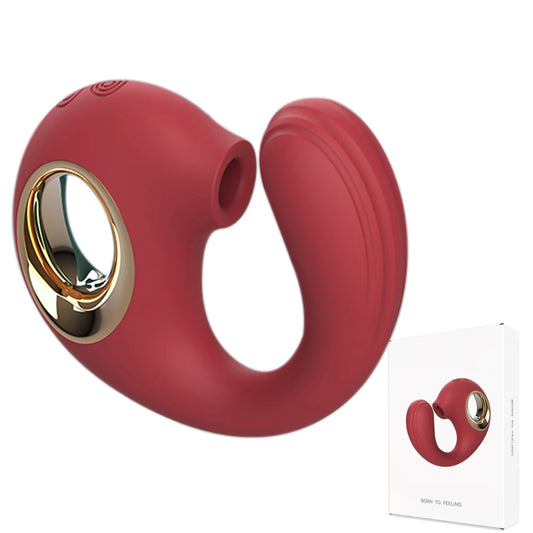Love Yourself: A Guide to Female Self-Exploration

Loving yourself is key to living a happy life.
It means being kind to yourself when things go wrong.
Forgive your mistakes and accept yourself without judging.
Self-love gives you the bravery to face problems and the strength to win.
Learning about yourself builds confidence and helps you grow.
You can find out what you enjoy, believe in, and are good at.
This isn’t selfish; it’s important for feeling happy and healthy.
A self pleasure guide can help you meet your needs better.
It can bring joy and balance to your daily life.
Starting self-love takes just one small step.
Trust yourself and enjoy finding out who you really are.
Key Takeaways
Loving yourself is key to being happy. Be kind to yourself and forgive your errors.
Knowing what you value, your strengths, and what you enjoy helps you improve and feel more confident.
Doing mindfulness exercises and writing in a journal can help you understand your feelings better.
Make clear rules for yourself and learn to say no. This saves your time and energy for important things.
Be proud of what you achieve, even if it’s small. Noticing progress makes you feel good and keeps you motivated.
Being thankful helps you focus on what you have, not what you lack, making you happier.
Spend time with people who make you feel good. Good friends and family help you love yourself more.
Self-love takes time and effort. Every small step helps you grow and feel better.
Understanding Self-Love

What Self-Love Truly Means

Explaining self-love in simple terms.
Self-love means being kind to yourself, like you are to friends. It’s about knowing you matter and not needing others’ approval. You can show self-love by caring for your needs and setting limits. Celebrate your wins, even the small ones. It’s not about being perfect but liking who you are while trying to improve.
Knowing the difference between self-love and selfishness.
Some think self-love is selfish, but it’s not the same. Self-love is about looking after yourself so you can help others better. It’s like putting on your oxygen mask first in an emergency. When you care for yourself, you have more energy to care for others.
Clearing Up Misunderstandings
Talking about myths that self-love is selfish.
Some people think self-love is lazy or selfish, but it’s not true. Taking time for yourself helps you feel better and think clearly. Doing things like reading a book or walking outside can improve your mood. These small acts of care are good for your mind and feelings.
Showing how self-love helps your mind and emotions.
Self-love keeps your mind healthy. It lowers stress, sadness, and loneliness. It helps you stay strong when life gets hard. Self-love also builds good habits, like resting enough and finding joy in daily life.
Tip: Start small. Spend a few minutes each day on self-care. It can make a big difference.
Why Self-Love Matters
How self-love helps relationships and personal growth.
When you love yourself, your relationships get better. You’ll set clear limits and attract people who respect you. Self-love also gives you courage to chase your dreams and try new things.
How self-love brings happiness and meaning.
Happiness starts with how you treat yourself. Self-love helps you focus on what’s important, like your dreams and values. When you care for yourself, you’ll enjoy life more and feel happier.
Remember, self-love isn’t something you finish—it’s something you keep doing. Each small step makes you healthier and happier.
Steps to Self-Exploration
Self-Awareness Practices
Thinking about values, strengths, and interests.
Getting to know yourself starts with knowing what matters most. Think about your values. What rules help you make choices? Look at your strengths—what makes you special? Also, think about your interests. What activities make you happy for hours? These thoughts can show who you really are and help you live a joyful life.
To make this easier, write things down. List your values, strengths, and interests. Seeing them written can make things clearer. This simple task can help you learn more about yourself.
Using writing and mindfulness to understand yourself.
Writing and mindfulness are great ways to explore your feelings. Writing down your thoughts helps you see patterns and understand emotions. Mindfulness helps you focus on now and notice feelings without judging them. Together, they help you learn more about yourself.
Mindfulness meditation helps you stay in the moment and notice your feelings calmly.
Journaling lets you track your thoughts and feelings, showing what happens often in your life.
Start small. Spend five minutes a day writing or being mindful. Over time, these habits can change how you see yourself.
Self-Compassion Techniques
Letting go of guilt for mistakes.
Mistakes happen to everyone. Instead of feeling bad, see them as lessons to grow. Forgiving yourself is important to move forward. Remember, mistakes don’t decide your worth.
One way to forgive yourself is by writing a letter. Talk about the mistake, share your feelings, and be kind to yourself. This can help you feel better and think positively.
Swapping negative thoughts for positive ones.
Saying bad things about yourself can hurt you. Replace them with kind words that lift you up. For example, instead of saying, "I’m not good enough," say, "I can do great things." Positive words can help your brain focus on your good points.
Make a list of kind words that inspire you. Say them every day, especially when things are hard. Over time, this can make you feel stronger and more confident.
Self-Care Routines
Making a self-care plan just for you.
A self-care plan that fits your needs can help you feel better. Start by choosing activities that relax and make you happy. These could be reading, walking, or enjoying nature. Add these to your daily schedule.
Doing self-care can lower stress and sadness, and make you happier. It also helps you feel more confident and get more done. By focusing on self-care, you take care of your overall health.
Learning to say no and protect your time.
Saying no is a way to respect yourself. It helps you save energy and focus on what’s important. Say no to things that tire you out. Share your needs clearly and firmly.
Good boundaries give you time for self-care and growth. They also make relationships better by showing respect. Remember, it’s okay to put yourself first. You deserve to feel calm and energised.
Tip: A self pleasure guide can also help you find activities that make you happy and healthy. It can bring balance and joy to your life.
Self Pleasure Guide
Discovering ways to care for your mind and body
Looking after your feelings and body is important for self-love. A self pleasure guide can show you how to feel happier and healthier. Start by noticing your emotions. Think about what makes you smile, feel calm, or full of energy. These clues can lead you to activities that help you feel good.
Simple exercises like stretching, yoga, or dancing can lift your mood. Moving your body eases stress and gives you more energy. You don’t need special tools or a gym. A short walk outside or stretching at home can make a big difference.
For your mind, try things that bring peace. Meditation, deep breaths, or soft music can help you relax. These activities teach you to enjoy the present and stop worrying about the past or future.
Tip: Write down activities that make you happy. Keep this list close for tough days. It can be your personal self pleasure guide.
Enjoying hobbies that bring happiness and rest
Happiness and rest are key to a healthy life. Doing things you love can brighten your day. Think about hobbies that excite you. Painting, gardening, or baking are fun examples. These hobbies not only make you happy but also let you be creative.
Rest is just as important. It helps your mind and body recharge. Easy activities like reading, having a warm bath, or drinking tea can help you relax. These small moments remind you to slow down and enjoy life.
A self pleasure guide helps you find what makes you happy. It’s about making time for yourself and putting your needs first. When you enjoy happiness and rest, your life becomes more balanced and positive.
Note: Never feel bad about taking time for yourself. You deserve peace and joy. These moments make you stronger and ready to handle challenges.
Overcoming Barriers
Addressing Perfectionism
Understanding why perfectionism happens
Perfectionism often comes from wanting to feel worthy or avoid blame. It can be shaped by past failures, harsh feedback, or pressure from society. Stress and worry can make these feelings worse, causing you to expect too much from yourself.
Studies show perfectionism affects self-esteem. For example:
Strict perfectionism links with r = .18.
Self-blaming perfectionism links with r = .24.
Narcissistic perfectionism links with r = .29.
These results show how perfectionism can make you too hard on yourself, lowering your confidence and happiness.
Tip: Think about why you aim for perfection. Knowing the cause can help you manage it better.
Accepting mistakes as part of learning
Mistakes don’t mean failure; they show you’re human. When you accept errors, you allow yourself to grow and improve. Trying something new, even if it’s not perfect, is better than avoiding it out of fear.
Start with small steps. Focus on enjoying the process, not just the result. For example, if you try painting, enjoy the fun rather than worrying about how good it looks. This attitude builds strength and self-belief.
Remember, moving forward matters more than being perfect. Every small step is a win worth celebrating.
Managing Negative Self-Talk
Spotting harmful beliefs
Negative self-talk often comes from old beliefs you’ve held onto. These might come from society, arguments, or your own fears. They can make you doubt yourself and stop you from reaching your goals.
To notice these patterns, keep a journal. Write down negative thoughts and think about where they come from. Talk to trusted friends or family for advice. If needed, ask a professional for help to understand deeper issues.
Tip: Noticing these beliefs is the first step to change. Once you see them, you can start to challenge them.
Turning bad thoughts into good ones
Changing your thoughts can change how you feel. Instead of thinking, "I’m not good enough," say, "I’m getting better every day." Positive words can help you focus on your strengths instead of your flaws.
Meditation can also help with negative thoughts. It teaches you to notice your feelings without judging them. Loving-kindness meditation helps you be kind to yourself and weakens the power of bad thoughts.
Tip: Say kind things to yourself every day. Over time, this habit can make you feel more confident and happy.
Navigating External Pressures
Ignoring what society expects
Society often sets unfair rules, making you feel less than enough. These pressures can cause stress and doubt. Letting go of them starts with realising your worth isn’t based on others’ opinions.
Think about what truly matters to you. Focus on your values and passions instead of seeking approval. Surround yourself with people who support and respect your choices. Their encouragement can help you stay true to yourself.
Tip: You don’t need to meet everyone’s expectations. True happiness comes from being yourself.
Staying strong against criticism
Criticism can feel tough, but it doesn’t define you. Being strong means knowing the difference between helpful advice and unkind comments. Use good advice to grow and ignore remarks that don’t help.
Meditation can help you handle criticism calmly. Mindfulness teaches you to stay focused and confident. This makes it easier to face challenges and believe in yourself.
Note: Strength against criticism is a skill you can learn. Each time you handle it well, you become more confident and strong.
Building a Supportive Environment

Healthy Relationships
Being around positive people
The people you spend time with affect how you feel. Being around positive people can make you feel happy and confident. These are the ones who cheer for you when you succeed and help you when things are hard. They listen kindly and encourage you to be your best.
To find these people, look for those who share your values and bring joy. Spend time with friends who make you laugh, family who support your dreams, or mentors who give good advice. These connections can make you feel stronger and more motivated to reach your goals.
Tip: Write down names of people who make you feel good. Spend more time with them and notice how it improves your mood.
Spotting and avoiding harmful relationships
Harmful relationships can make you feel bad about yourself. These often include people who criticise, control, or disrespect you. The first step to protecting yourself is noticing these signs.
If someone makes you feel small or guilty often, set limits. Stay away from people who bring negativity into your life. This gives you room for better relationships that help you grow.
Letting go of harmful relationships is hard but important. You deserve to be with people who support and uplift you.
Setting Boundaries
Sharing your needs clearly
Telling others what you need is part of self-care. When you speak clearly, you show respect for yourself and others. Use simple words to explain your needs. For example, say, “I need some quiet time,” instead of hoping others will guess.
Clear communication makes relationships better. It avoids confusion and ensures your needs are met. Practising this skill can make you feel more confident and in control of your life.
Tip: Practise saying what you need in front of a mirror. This can help you feel more comfortable speaking up.
Saying no without feeling bad
Saying no is a way to take care of yourself. It helps you save time and energy for what matters most. Many people feel bad about saying no, but it’s okay to put yourself first.
When you say no, be kind but firm. For example, “Thanks for asking, but I can’t help right now.” Setting limits like this stops you from feeling too tired and helps you focus on what’s important.
Setting limits helps your mind stay healthy, builds self-awareness, and makes you more independent. It’s a great way to show yourself respect.
Seeking Support
How therapy can help
Therapy can be a great way to learn about yourself. A trained therapist gives you a safe place to talk about your feelings and problems. They can help you understand your emotions and find ways to grow.
Going to therapy doesn’t mean you’re weak—it shows you care about your mental health. Whether you feel stressed, worried, or unsure, therapy can help you feel better and stronger.
Note: Therapy can improve your mental health, help you accept yourself, and make you more aware of your feelings. It’s a helpful tool for anyone working on self-love.
Joining groups that match your goals
Joining groups with similar interests can be very helpful. These groups make you feel like you belong and are understood. Whether it’s a club, a fitness group, or an online forum, finding people who like the same things can lift your spirits.
These groups keep you focused on your goals. They celebrate your progress and remind you that you’re not alone. Being part of a group can make you feel more determined and inspired.
Tip: Look for local events or online groups that match your interests. These connections can make your self-love journey even better.
Embracing Growth
Celebrating Achievements
Acknowledging milestones and progress
Every step you take on your self-love journey matters. Recognising your progress, no matter how small, builds confidence and keeps you motivated. Did you set a boundary today? Did you take five minutes to journal? These are victories worth celebrating.
A study by Amabile & Kramer (2011) highlights that celebrating progress enhances motivation and encourages continued personal growth.
Acknowledging achievements reminds you of your strength and resilience.
Create a habit of reflecting on your wins. Write them down in a journal or share them with a trusted friend. Seeing how far you’ve come can inspire you to keep moving forward.
Tip: Reward yourself for milestones. Treat yourself to something you enjoy, like a relaxing bath or your favourite dessert. You deserve it.
Practising gratitude for the journey
Gratitude transforms how you see your journey. Instead of focusing on what’s missing, it helps you appreciate what you’ve gained. Think about the lessons you’ve learned, the challenges you’ve overcome, and the person you’re becoming.
Start a gratitude practice. Each day, write down three things you’re thankful for. These could be as simple as a kind word from a friend or a moment of peace during your day. Gratitude shifts your mindset and fills your heart with positivity.
Note: Gratitude doesn’t erase struggles, but it helps you find joy in the process. Celebrate the beauty of your unique path.
Practising Patience
Viewing self-love as a lifelong process
Self-love isn’t a destination; it’s a journey that evolves with you. There will be days when it feels easy and others when it feels like a challenge. That’s okay. Growth takes time, and every step you take is part of the process.
Remind yourself that progress doesn’t have to be perfect. Each moment of self-care, each act of kindness towards yourself, adds up over time. Trust the process and give yourself the grace to grow at your own pace.
Tip: When you feel impatient, take a deep breath and remind yourself, “I am a work in progress, and that’s beautiful.”
Turning setbacks into growth opportunities
Setbacks are not failures; they’re lessons in disguise. When things don’t go as planned, take a moment to reflect. What can you learn from the experience? How can it help you grow stronger?
For example, if you struggle to set a boundary, think about what made it difficult. Use that insight to prepare for the next time. Each challenge you face is an opportunity to build resilience and deepen your self-awareness.
Remember, growth often comes from the toughest moments. Embrace them as stepping stones on your journey.
Staying Committed
Building habits that reinforce self-love
Consistency is key to nurturing self-love. Small, daily habits can create a strong foundation for your well-being. Start with simple actions like drinking water, taking breaks, or speaking kindly to yourself. Over time, these habits become second nature.
Create a routine that works for you. Maybe it’s a morning ritual of stretching and affirmations or an evening practice of journaling and reflection. These habits remind you to prioritise yourself every day.
Tip: Use reminders or alarms to help you stick to your self-love habits. Celebrate each day you follow through.
Revisiting and adjusting goals
Your goals may change as you grow, and that’s perfectly normal. Regularly check in with yourself. Are your goals still aligned with your values and desires? If not, adjust them to reflect who you are now.
Flexibility is a sign of strength, not weakness. It shows that you’re listening to yourself and honouring your needs. By revisiting your goals, you stay connected to your journey and ensure it continues to serve you.
Note: Growth isn’t about rigidly sticking to a plan. It’s about evolving and adapting as you discover more about yourself.
Loving yourself and learning about who you are can change your life. When you know what matters to you, show kindness to yourself, and set limits, you build a path to happiness and growth. Every small step helps you become stronger and more confident.
Remember: Your journey is special. Enjoy each success and take your time. What counts is making progress, not being perfect.
Start today with one small action. Think, learn, and accept yourself. You deserve a happy life full of balance, joy, and self-love. 🌟
FAQ
What is the first step to practising self-love?
Start by realising you are important. Think about your strengths and what matters to you. Write them down to remember your special qualities. Do small kind things for yourself, like resting or saying nice things about yourself. These can help you begin your self-love journey.
How can I stop feeling guilty about setting boundaries?
Know that boundaries keep you healthy and happy. They help you focus on what’s important. Speak about your needs clearly and kindly. Saying no doesn’t mean you’re selfish. It shows you respect yourself and helps you have better relationships.
Can self-love improve my relationships?
Yes, self-love makes relationships better. When you value yourself, you find people who respect and care for you. It also helps you set good boundaries, talk openly, and avoid bad relationships. Loving yourself first creates strong and balanced connections.
How do I deal with negative self-talk?
Notice when you think badly about yourself and question it. Change those thoughts into positive ones, like “I can do this” or “I deserve to be happy.” Writing in a journal can help you see patterns in your thoughts. Mindfulness teaches you to notice your feelings without being hard on yourself.
Is self-care the same as self-love?
Self-care is part of self-love. It means doing things that keep your body, mind, and feelings healthy. Self-love goes further, helping you accept yourself, forgive mistakes, and feel confident. Together, they help you live a happy and balanced life.
How can I stay motivated on my self-love journey?
Celebrate small successes. Notice your progress, even if it’s tiny. Be around people who support you and check your goals often. Gratitude, like writing three things you’re thankful for each day, can also keep you inspired.
What if I struggle with perfectionism?
Perfectionism often comes from being scared to fail. Focus on getting better instead of being perfect. See mistakes as chances to learn. Start small by trying new things without worrying about how they turn out. Each step forward makes you stronger and more confident.
Can therapy help with self-love?
Yes, therapy can help a lot. It gives you a safe place to talk about your feelings and problems. A therapist can help you understand your emotions, feel less doubt, and build confidence. Getting help shows you care about yourself and want to grow.
Tip: Therapy isn’t just for big problems. It’s a great way to learn about yourself and grow as a person.








